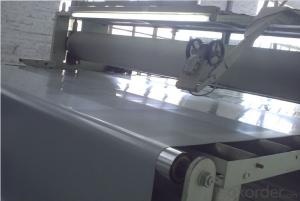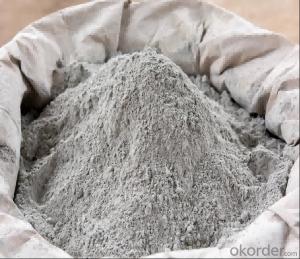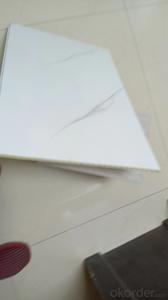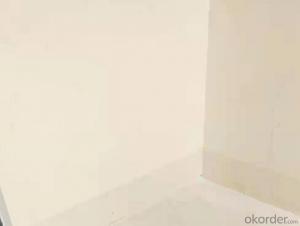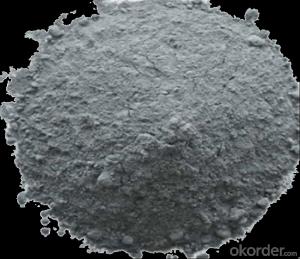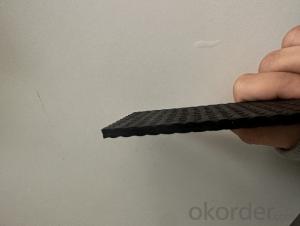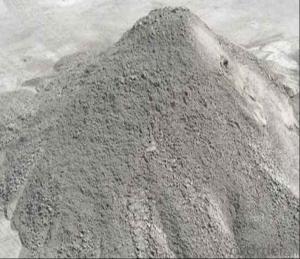PVC Puncture Resistant Waterproof Membrane with Fabric
- Loading Port:
- China main port
- Payment Terms:
- TT OR LC
- Min Order Qty:
- 1000 m²
- Supply Capability:
- 50000 m²/month
OKorder Service Pledge
OKorder Financial Service
You Might Also Like
Product Specification
name:High Quality PVC Waterproofing membrane
brand:Wanbao
width:2.05m
thickness: 1.2mm,,1.5mm,,2.0mm
Product Features
low -cost ,anti-aging ,anti -ultraviolet proformance ,shrinkage rate is high ,low temperature flexibility is good
Physical Property
1. Exposed to sunshine: UV rays resistance, long service life and aging resistance
2. Easy installation and dimensional stability: can be wieldable under wide range of temperature and experience minus dimensional change in thermal treatment
3. High tensile strength and elongation thus can accommodate movements of substrates
4.Good flexibility under low temperature, good adaptability to ambient temperature difference
5, Secure anti-puncture and good rooting resistance, no pollution caused to environment when being welded and good waterproofing choice for plant roofs
6. Good plasticity: convenient and fast treatment of detailed parts of corners and edges
Product usage
Different kinds of Pvc waterproof membrane can variously be used to the roof building, underground building,tunnel,dam,pool,sewage treatment works,garbage disposal facilities.It also can be suitable to any requirement of all kinds of technological practice&different grade of roof waterproof and underground constructions waterproof.
FAQ of PVC Waterproofing Membrane
a.Can we get some samples before place order?
Answer: We can send the free samples to you by freight collect.
b.How many years can your PVC membrane guarantee?
Answer: We will guarantee the quality for 5 years at least.
c.Which countries you ever export the product?
Answer: We export the PVC membrane to South Africa, Middle east and even European countries.
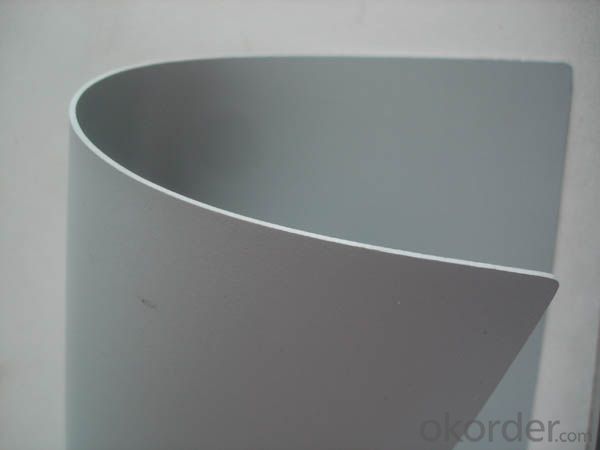
- Q:What is the best waterproofing membrane for my project?
- The best waterproofing membrane for your project depends on various factors such as the type of project, the specific requirements, and the budget. There are several options available in the market, each offering different features and benefits. One popular choice is a bituminous waterproofing membrane. It is a cost-effective option suitable for a wide range of projects, including roofs, basements, and foundations. Bituminous membranes are durable, flexible, and capable of withstanding extreme weather conditions. They can be applied using torch-on, self-adhesive, or hot-melt methods. Another option to consider is a polyurethane liquid membrane. This type of membrane provides excellent elasticity, making it ideal for areas that require flexibility, such as balconies, terraces, and swimming pools. Polyurethane membranes are resistant to UV rays and can be easily applied by brush or roller. For projects that require a high level of durability and resistance, a cementitious waterproofing membrane might be the best choice. It is a mixture of cement, sand, and special additives that create a thick, protective layer. Cementitious membranes are commonly used for underground structures, tunnels, and water tanks. If your project involves below-grade applications or areas with high water pressure, a bentonite waterproofing membrane could be the best option. Bentonite membranes are made of clay minerals that swell when exposed to water, forming a watertight barrier. They are commonly used in basements, foundations, and retaining walls. Ultimately, the best waterproofing membrane for your project will depend on the specific requirements, budget, and preferences. It is recommended to consult with a professional waterproofing contractor who can assess your project's needs and recommend the most suitable membrane system.
- Q:Can a waterproofing membrane be used in bathrooms or showers?
- Yes, a waterproofing membrane can be used in bathrooms or showers. In fact, it is highly recommended to use a waterproofing membrane in these areas to prevent water damage and leakage. A waterproofing membrane acts as a barrier that prevents water from penetrating through the walls, floors, and other surfaces in the bathroom or shower. It is typically applied before tiling or finishing the surfaces, providing an extra layer of protection against moisture and ensuring that the underlying structure remains dry. This not only helps to prevent mold and mildew growth but also prolongs the lifespan of the bathroom or shower.
- Q:Can a waterproofing membrane be used for roofing applications?
- Indeed, a waterproofing membrane can be utilized in roofing applications. Specifically designed to create a barrier against water infiltration, waterproofing membranes are commonly employed in a range of construction projects, including roofs. These membranes typically consist of durable materials like synthetic rubber, thermoplastics, or modified bitumen, renowned for their water-resistant properties and longevity. By installing a waterproofing membrane on the roof, one can effectively safeguard the building from water leaks and moisture penetration, which may result in structural damage, mold growth, and other related problems. The membrane is typically applied seamlessly onto the roof surface, forming a watertight layer that prevents water from permeating through. Waterproofing membranes for roofing applications are available in various types, such as sheet membranes, liquid or spray-applied membranes, or self-adhering membranes. Each type offers distinct advantages and suitability depending on the specific roofing requirements and construction conditions. In conclusion, a waterproofing membrane is indeed a viable choice for roofing applications, providing an efficient solution to ensure a durable and watertight roof system.
- Q:Can a waterproofing membrane be used for retaining walls?
- Yes, a waterproofing membrane can be used for retaining walls. Retaining walls are structures designed to hold back soil or water, and it is essential to prevent water penetration to avoid potential damage or structural failure. Waterproofing membranes are commonly used to provide a barrier against water infiltration, thereby protecting the retaining wall and ensuring its stability over time. These membranes are typically made of materials like rubber, PVC, or bituminous compounds, and they are installed on the inner side of the retaining wall to prevent water from seeping through. Additionally, some waterproofing membranes also offer additional benefits such as resistance to root penetration, UV protection, and flexibility to accommodate movement in the retaining wall. However, it is important to note that the specific type of waterproofing membrane used should be selected based on factors such as the type of retaining wall, the level of water pressure, and local climate conditions. Consulting with a professional engineer or contractor is recommended to ensure the appropriate waterproofing solution for your particular retaining wall project.
- Q:Does a waterproofing membrane require any curing time?
- Yes, a waterproofing membrane typically requires a curing time. The curing time is necessary for the membrane to fully bond and form a strong, impermeable barrier. The specific curing time can vary depending on the type of membrane and the manufacturer's instructions. During the curing process, the membrane may need to be protected from foot traffic, water exposure, or other potential damage. It is important to follow the recommended curing time to ensure the membrane's effectiveness and longevity.
- Q:How do waterproofing membranes adhere to surfaces?
- Waterproofing membranes adhere to surfaces through a combination of mechanical and chemical bonding. The surfaces must be clean, dry, and free from any loose particles or contaminants before the membrane is applied. In terms of mechanical bonding, many waterproofing membranes have a textured or rough surface that allows for a better grip on the substrate. This texture creates more contact points between the membrane and the surface, increasing the adhesion strength. Additionally, some membranes have a self-adhesive backing that allows them to stick directly to the substrate without the need for additional adhesives. Chemical bonding also plays a crucial role in adhesion. Waterproofing membranes are often made from materials such as modified bitumen, EPDM rubber, or PVC, which have inherent adhesive properties. These materials are designed to create a chemical bond with the substrate, creating a strong and durable seal. In some cases, additional adhesives or primers may be required to enhance the adhesion of the waterproofing membrane. These products are specifically formulated to promote a stronger bond between the membrane and the surface, ensuring long-lasting waterproofing protection. Overall, the adhesion of waterproofing membranes to surfaces is achieved through a combination of mechanical and chemical bonding, along with the use of specialized adhesives or primers when necessary. This ensures that the membrane is securely attached to the substrate, preventing water from penetrating and causing damage.
- Q:Can a waterproofing membrane be used for foundation waterproofing?
- Yes, a waterproofing membrane can be used for foundation waterproofing. A waterproofing membrane is a thin layer of material that is designed to prevent water from penetrating the foundation walls. It is typically made of a flexible material such as rubber or plastic, and is applied to the exterior of the foundation. The membrane acts as a barrier, preventing water from seeping into the foundation and causing damage. It is installed by applying a layer of adhesive to the foundation walls, and then rolling the membrane onto the adhesive. The seams of the membrane are typically sealed with a special tape or adhesive to ensure a watertight seal. Using a waterproofing membrane for foundation waterproofing is an effective way to protect the foundation from water damage. It helps to prevent issues such as leaks, cracks, mold growth, and structural damage that can result from water infiltration. It is important to note that while a waterproofing membrane is a valuable component of foundation waterproofing, it is not the only measure that should be taken. Proper drainage, grading, and foundation construction are also important factors in preventing water damage. Therefore, it is recommended to consult with a professional to determine the best combination of waterproofing methods for your specific foundation.
- Q:Can a waterproofing membrane be used on asphalt surfaces?
- Yes, a waterproofing membrane can be used on asphalt surfaces. Waterproofing membranes are commonly used in construction and are designed to provide a protective barrier against water infiltration. They are versatile and can be applied to various surfaces, including asphalt. Applying a waterproofing membrane on an asphalt surface can help prevent water damage, increase the longevity of the surface, and protect the underlying structures. It is important to ensure that the waterproofing membrane used is compatible with asphalt and that proper installation techniques are followed to achieve optimal results.
- Q:Can waterproofing membranes be used in swimming pools?
- Yes, waterproofing membranes can be used in swimming pools. Waterproofing membranes are commonly used in swimming pools to prevent water leakage and to protect the structural integrity of the pool. These membranes are typically made of durable materials, such as PVC or EPDM, that are designed to withstand constant exposure to water and pool chemicals. They are applied to the concrete or other pool structures to create a watertight barrier that prevents water from seeping through. Additionally, waterproofing membranes can also provide protection against cracks, corrosion, and other forms of damage, ensuring the longevity and durability of the pool.
- Q:Can a waterproofing membrane be used on precast metal surfaces?
- Yes, a waterproofing membrane can be used on precast metal surfaces. The membrane acts as a protective barrier, preventing water from seeping through the metal and causing damage. It helps to maintain the integrity and longevity of the precast metal surfaces by keeping them dry and free from moisture-related issues.
1. Manufacturer Overview |
|
|---|---|
| Location | |
| Year Established | |
| Annual Output Value | |
| Main Markets | |
| Company Certifications | |
2. Manufacturer Certificates |
|
|---|---|
| a) Certification Name | |
| Range | |
| Reference | |
| Validity Period | |
3. Manufacturer Capability |
|
|---|---|
| a)Trade Capacity | |
| Nearest Port | |
| Export Percentage | |
| No.of Employees in Trade Department | |
| Language Spoken: | |
| b)Factory Information | |
| Factory Size: | |
| No. of Production Lines | |
| Contract Manufacturing | |
| Product Price Range | |
Send your message to us
PVC Puncture Resistant Waterproof Membrane with Fabric
- Loading Port:
- China main port
- Payment Terms:
- TT OR LC
- Min Order Qty:
- 1000 m²
- Supply Capability:
- 50000 m²/month
OKorder Service Pledge
OKorder Financial Service
Similar products
New products
Hot products
Related keywords
